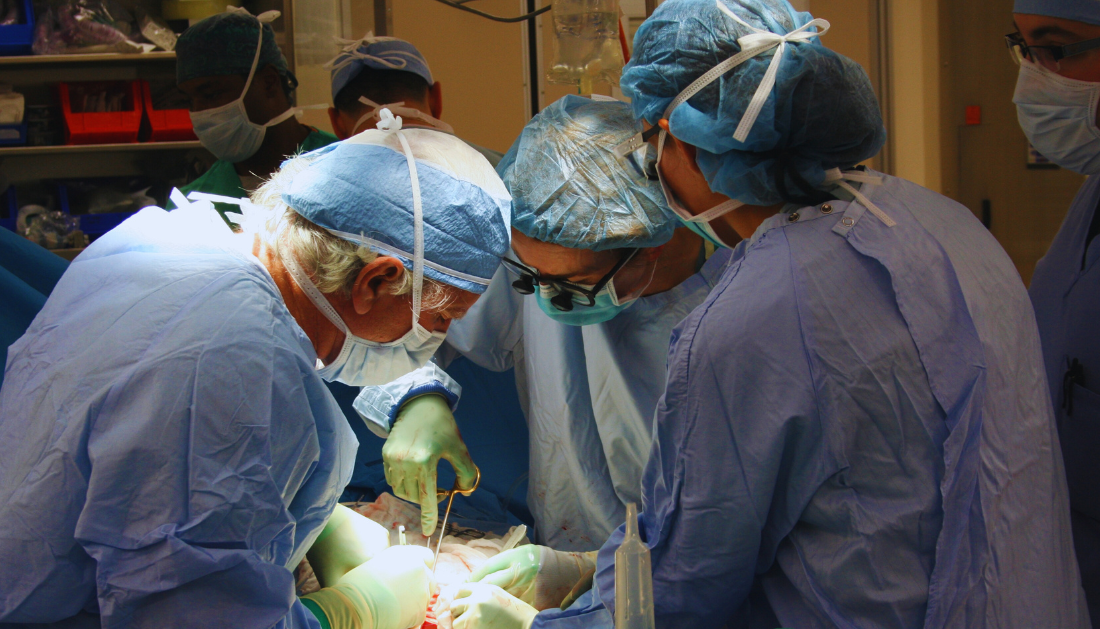

Surgeons at NYU Langone Health have achieved a transformative milestone in organ transplantation, successfully implanting a gene-edited pig kidney into Towana Looney, a 53-year-old Alabama resident. The pioneering procedure, conducted under the FDA’s compassionate use program, has revitalized Looney’s health and could redefine how the global organ shortage is addressed.
A Journey of Resilience and Hope
Towana Looney’s battle with kidney failure began years ago after a complication during pregnancy caused severe hypertension. Having donated a kidney to her mother in 1999, Looney faced an unusual twist of fate when she herself developed end-stage kidney disease. For nearly eight years, she endured grueling dialysis treatments, her condition complicated by high antibody levels that made finding a donor match nearly impossible.
This reality left Looney with a grim prognosis until she became eligible for a revolutionary xenotransplantation procedure. This cutting-edge technique involves transplanting organs from genetically modified pigs into human patients—a frontier that promises to alleviate the dire organ shortage impacting millions worldwide.
The Science Behind the Gene-Edited Pig Kidney Breakthrough
Looney’s procedure utilized a gene-edited pig kidney featuring 10 modifications aimed at preventing rejection and improving compatibility. Developed by Revivicor Inc., the organ underwent extensive genetic alterations, including the removal of specific antigens and the addition of human transgenes. The transplant team, led by Dr. Robert Montgomery, meticulously planned and executed the seven-hour surgery on November 25, 2024, at NYU Langone Health in New York City.
“This moment represents a culmination of years of research and innovation,” said Dr. Montgomery, who also led the world’s first gene-edited pig organ transplant in 2021. “Towana’s case demonstrates the incredible potential of xenotransplantation to save lives and address the organ supply crisis.”
A Life Transformed
Following her surgery, Looney has made remarkable progress. After an 11-day hospital observation period, she was discharged to temporary accommodation in New York City, where she continues to receive daily evaluations. Her immune system is being closely monitored to adapt to the new organ, and she is expected to return home to Alabama within three months.
“I feel like I’ve been given a new lease on life,” Looney shared. “This kidney has not just improved my health—it has restored my hope. I can’t wait to travel and spend time with my family again.”
The Implications for Global Health
The success of Looney’s xenotransplant is a critical step in solving the organ shortage crisis. Over 104,000 people in the United States are on organ transplant waiting lists, with more than 90,400 requiring kidneys. Traditional human organ availability remains woefully inadequate to meet demand, but advancements like gene-edited xenotransplantation hold immense promise.
Collaborative Efforts Drive Progress
Looney’s journey to recovery was made possible through the collaboration of leading experts, including Dr. Jayme Locke, who initially managed her care in Alabama. Dr. Locke’s research at the University of Alabama at Birmingham provided vital data to secure FDA approval for the procedure.
NYU Langone Health, under Dr. Montgomery’s leadership, has been at the forefront of xenotransplantation research. Their groundbreaking work includes several previous pig-to-human transplants, paving the way for potential clinical trials to determine the broader safety and efficacy of such procedures.
The Future of Xenotransplantation
The use of gene-edited pig kidneys is not merely a medical marvel—it represents a lifeline for patients languishing on transplant waiting lists. Researchers are optimistic about the potential of these organs to serve as a sustainable solution, reducing reliance on human donors and extending life expectancy for countless individuals.
“Towana’s success is a beacon of hope for all who are waiting for a second chance at life,” said Dr. Locke. “It shows what’s possible when science, collaboration, and compassion converge.”
Progress Rooted in Innovation
From gene editing to clinical application, Looney’s procedure is the result of decades of innovation. The pioneering edits to the pig kidney have addressed critical immunogenic barriers, offering a glimpse into the future of medicine.
“Without the dedication of patients, researchers, and the medical community, such advancements would not be possible,” Dr. Montgomery stated. “This milestone is a testament to the resilience of the human spirit and the promise of science to transform lives.”
More Information: NYU Langone
more recommended stories
 Texas Medical Board Releases Abortion Training for Physicians
Texas Medical Board Releases Abortion Training for PhysiciansKey Takeaways Texas Medical Board has.
 Phage Therapy Study Reveals RNA-Based Infection Control
Phage Therapy Study Reveals RNA-Based Infection ControlKey Takeaways (Quick Summary) Researchers uncovered.
 Safer Allogeneic Stem Cell Transplants with Treg Therapy
Safer Allogeneic Stem Cell Transplants with Treg TherapyA new preclinical study from the.
 AI in Emergency Medicine and Clinician Decision Accuracy
AI in Emergency Medicine and Clinician Decision AccuracyEmergency teams rely on rapid, accurate.
 Innovative AI Boosts Epilepsy Seizure Prediction by 44%
Innovative AI Boosts Epilepsy Seizure Prediction by 44%Transforming Seizure Prediction in Epilepsy Seizure.
 Hypnosis Boosts NIV Tolerance in Respiratory Failure
Hypnosis Boosts NIV Tolerance in Respiratory FailureA New Approach: Hypnosis Improves NIV.
 Bee-Sting Microneedle Patch for Painless Drug Delivery
Bee-Sting Microneedle Patch for Painless Drug DeliveryMicroneedle Patch: A Pain-Free Alternative for.
 AI Reshapes Anticoagulation in Atrial Fibrillation Care
AI Reshapes Anticoagulation in Atrial Fibrillation CareUnderstanding the Challenge of Atrial Fibrillation.
 Hemoglobin as Brain Antioxidant in Neurodegenerative Disease
Hemoglobin as Brain Antioxidant in Neurodegenerative DiseaseUncovering the Brain’s Own Defense Against.
 Global Data Resource for Progressive MS Research (Multiple Sclerosis)
Global Data Resource for Progressive MS Research (Multiple Sclerosis)The International Progressive MS Alliance has.

Leave a Comment